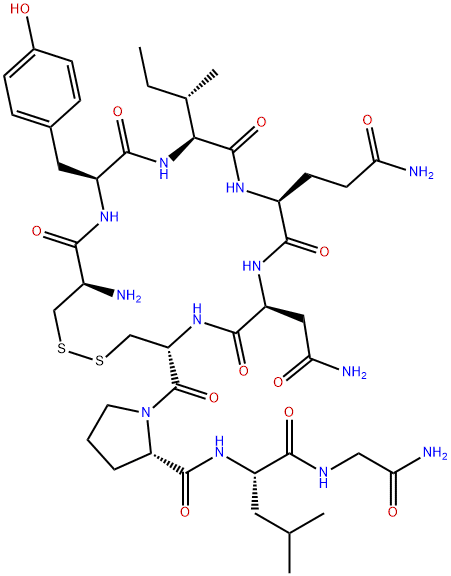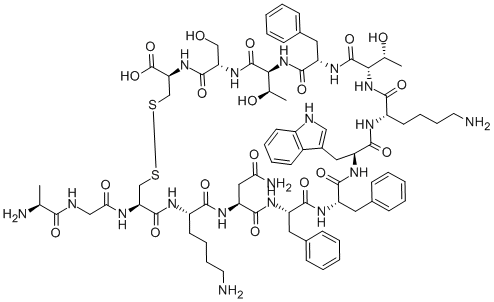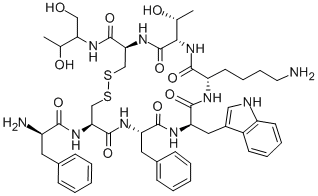BivalirudinTrifluoroacetate , 10mMinWater , 128270-60-0
Synonym(s):
;Hirulog trifluoroacetate salt
CAS NO.:128270-60-0
Empirical Formula: C98H138N24O33
Molecular Weight: 2180.29
MDL number: MFCD08282793
EINECS: 274-570-6
| Pack Size | Price | Stock | Quantity |
| 1ml | RMB559.20 | In Stock |
|
| others | Enquire |
PRODUCT Properties
| Density | 1.52±0.1 g/cm3(Predicted) |
| storage temp. | -20°C |
| solubility | ≥54.5 mg/mL in DMSO with gentle warming; ≥10.18 mg/mL in EtOH with gentle warming and ultrasonic; ≥43.5 mg/mL in H2O with gentle warming |
| form | powder |
| color | white to off-white |
| Sequence | D-Phe-Pro-Arg-Pro-Gly-Gly-Gly-Gly-Asn-Gly-Asp-Phe-Glu-Glu-Ile-Pro-Glu-Glu-Tyr-Leu-OH |
| InChIKey | OIRCOABEOLEUMC-GEJPAHFPSA-N |
Description and Uses
Bivalirudin is an inhibitor of α- and ζ-thrombin (Kis = 2.56 and 1.84 nM, respectively), enzymes that exhibit high fibrinogen-clotting activities. It is selective for α- and ζ-thrombin, lacking activity at trypsin and γ-thrombin, which lacks clotting activity, at a >1,000-fold excess of bivalirudin. Bivalirudin inhibits α-thrombin-stimulated activation of the clotting factors Factor X, Factor V, and prothrombin in contact-activated plasma at a concentration of 0.1 μM. Administration of bivalirudin (0.5-1.5 mg/kg, i.v.) reduces platelet deposition in a rat carotid endarterectomy model in a dose-dependent manner. Formulations containing bivalirudin have been used to prevent ischemic events during angioplasty for thrombus-containing lesions.
Anticoagulant; antithrombotic.
Safety
| Precautionary statements | P271-P261-P280 |
| WGK Germany | 3 |
| HS Code | 3504009000 |





